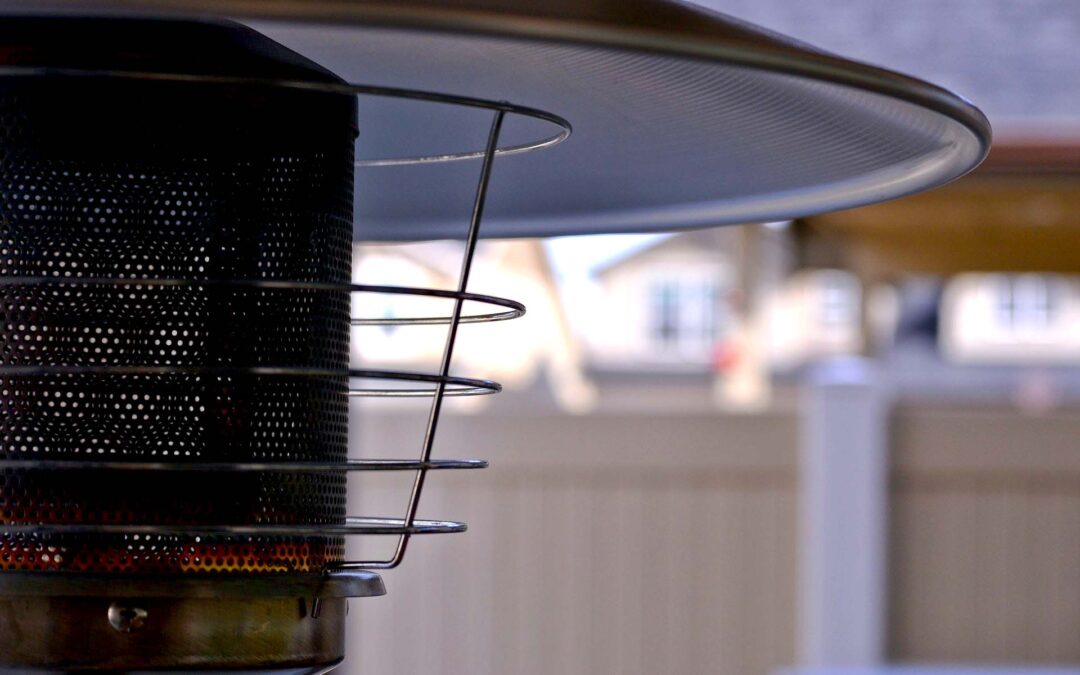You love your patio! It’s a welcoming and gracious space made newly stunning this time of year by pots of gold and crimson fall flowers. Unfortunately, that bit of a chill in the air is driving family and guests to seek a cozy nook indoors. If, like many of us, you’d like to extend your outdoor dining and entertaining season, it’s time to take a serious look at patio heaters.
How do patio heaters work?
When looking to purchase a patio heater, you’ll have a choice of either an electric model or one that burns fuel such as propane or natural gas. Rather than blasting hot air, patio heaters, regardless of the type, produce radiant heat which travels through the air, similar to how we are warmed by the sun.
Are they effective?
Effective? Most certainly! As you may have experienced during the pandemic, many restaurants relied on heated outdoor spaces rather than indoor dining for their patrons. Essentially, they used large patio heaters to keep their guests comfortable. When purchasing a patio heater for your home space, check the square-foot coverage and BTU specifications to determine the size you need.
Which type of heater is best?
You have several options. Propane heaters have the highest heat capacity but cost more than electric models. Electric heaters are less costly to run and have the added benefit of zero emissions and no need to buy fuel. The cheapest heaters run on natural gas and always have a ready fuel source but require professional, permanent installation.
What sizes are available?
You can choose from tabletop, hanging, or freestanding models. The small models can work great for intimate dinners, but if you are in the habit of entertaining on a grand scale, you may want to consider a commercial model similar to those used by restaurants.
Are there safety considerations?
Safety first! Be sure to read the manual that accompanies your new patio heater carefully. You will find that heaters have built-in safety features such as automatic shut-off valves in the event the unit tips over. Remember to clear the immediate area around the heater of flammable items, and be certain your heater is firmly anchored, especially if you live in a high-wind area.



Recent Comments